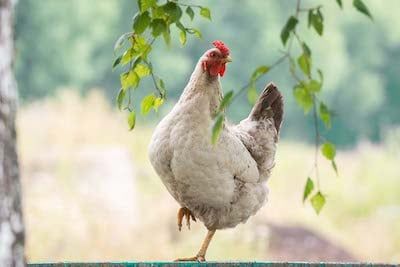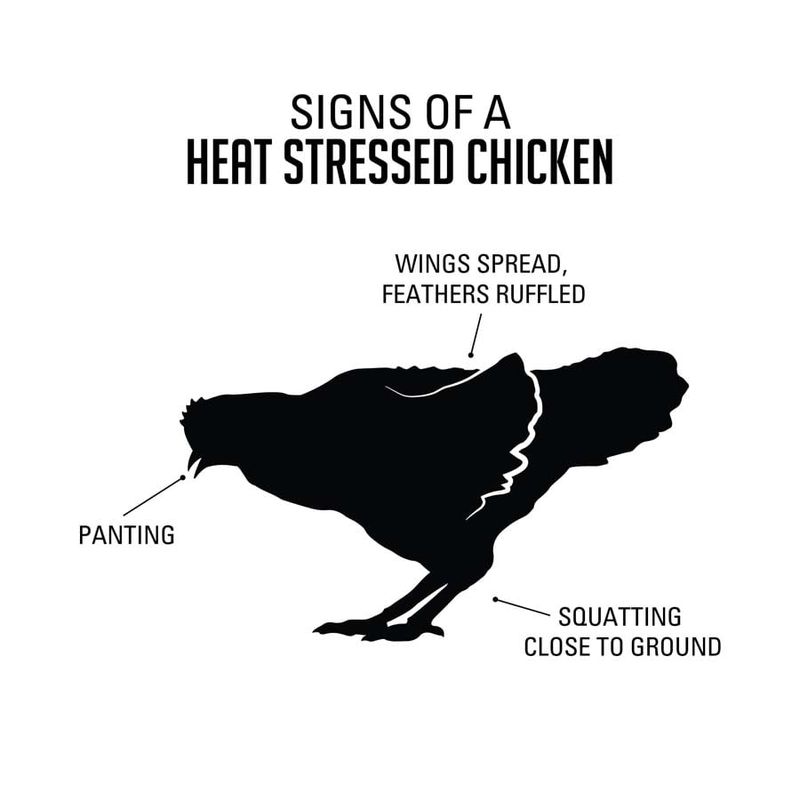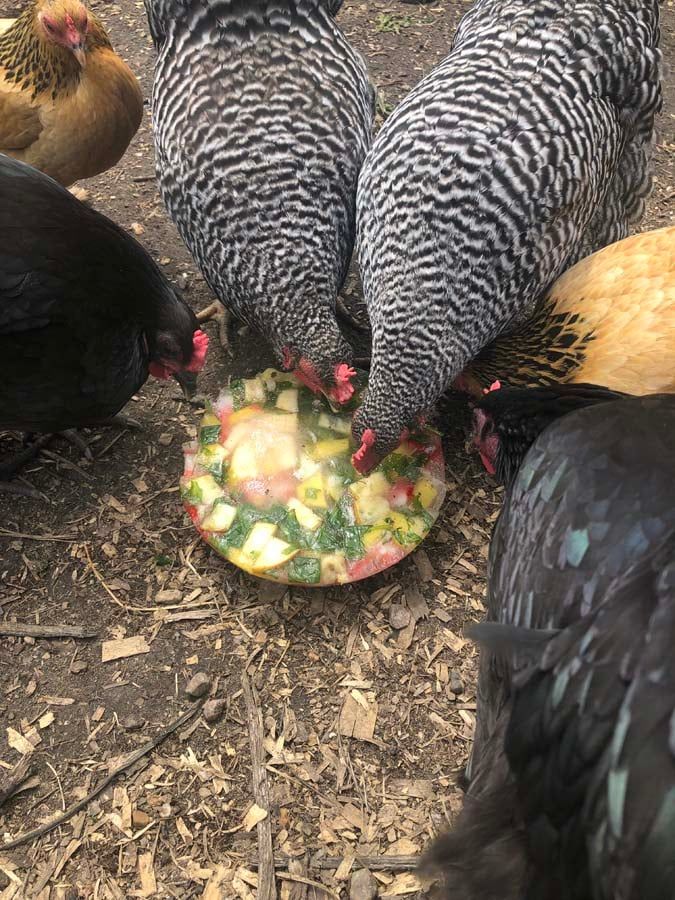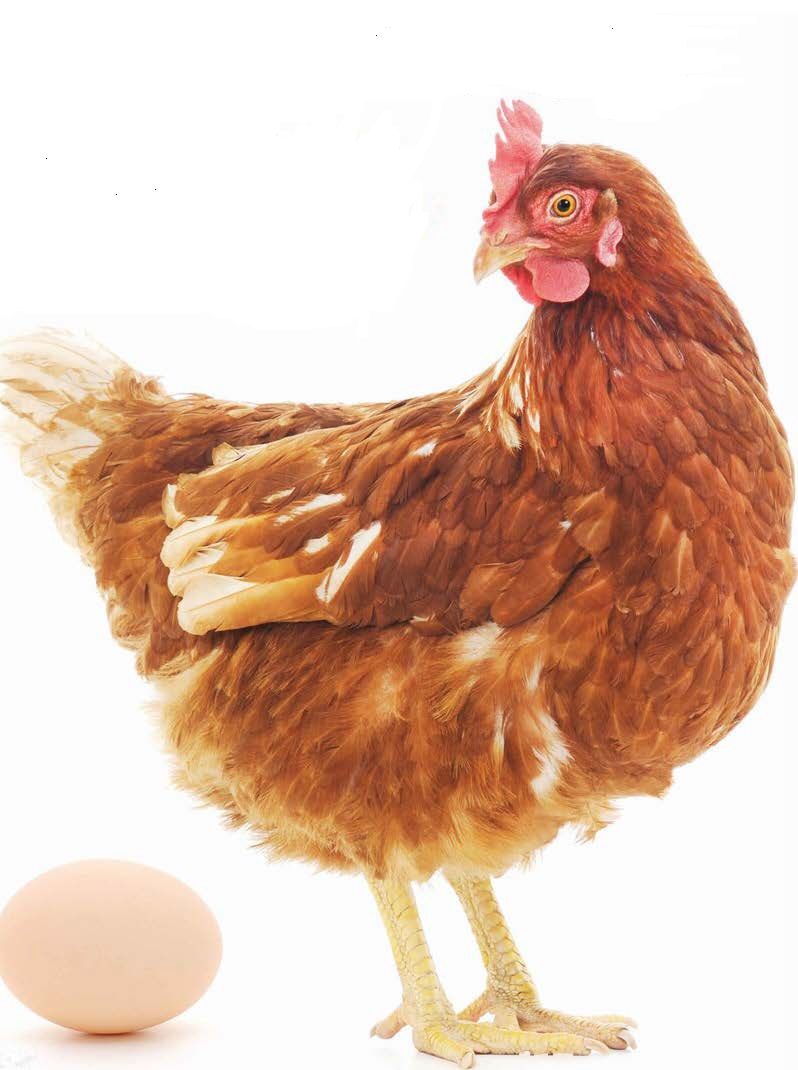Can You Feel the Heat?


Do you recognize the signs of heat stress?
As humans, we all have daily stresses, but what kind of stress could my birds have? I provide them with everything they could ever need!
Chickens and other prey animals are really good at hiding stress. This comes from a natural tendency not to appear vulnerable to predators. They are hard-wired with a very strong “flight response.” Which basically means they get stressed out really easily but can be good at hiding it, even when it is negatively impacting their health.
There are many common activities and events that can cause birds to feel the effects of stress.
Examples of stressors include:
- Adding new birds to the flock
- Cleaning out the coop
- Moving the flock to a new location
- Handling birds
- Disease challenges
- Predators
- Sudden changes in diet
- Running out of feed or water
- Drastic weather changes
Just like high stress can impact our bodies, stress can cause changes to birds’ bodies and these changes can actually negatively impact their immune system. Many of these stressors are just necessary parts of a bird’s life, and essential for their health and wellbeing. But when we understand the effects they have on birds, we can find ways to decrease the intensity of the stress and alleviate some of the negative effects on their health.
Let’s focus on the impact heat stress has on birds and what you can do to help alleviate the effects..
What is heat stress?
This is a condition that occurs with elevated heat and humidity. Just like mammals, birds are warm blooded, which means that their bodies make their own heat.

Heat stress results when there is an imbalance between the heat leaving the bird and the amount of energy (heat) being produced by the bird.
It occurs when heat and humidity reach levels that are beyond a bird’s ability to dissipate enough heat to keep their body temperatures from rising. Birds are comfortable at temperatures between 60° and 75° F, but as temperatures rise above 75°F., they begin to experience signs of heat stress.
Birds do not have sweat glands, so they have to find other ways to cool down. One of the ways birds dissipate heat is by panting, but when humidity levels reach above 70%, it is almost impossible for the birds to lose heat via panting. This makes is very important to monitor temperature and humidity forecasts.
Some birds are more sensitive to heat stress than others. Feather cover, age, and genetics can pre-dispose birds to be more sensitive or more resilient to heat stress.
Heat stress can decrease growth rates and negatively impact egg quality, including size, shell strength, interior quality and production rate. When heat stress is severe, it can even cause mortality in your flock.
Signs of heat stress
There are several signs to watch for to determine if your birds are experiencing heat stress. Look for:
- Decreased activity
- Spread and drooped wings
- Feather ruffling
- Squatting close to ground
- Seeking cooler places, even burrowing in litter
- Increased fecal excretion (diarrhea/flushing)
- Panting
- Increased water consumption
- Decreased feed consumption

How does heat stress impact bird health?
In addition to those above, a serious one to watch for is “flushing,” or releasing extremely watery feces in an attempt to cool themselves. In addition to losing essential nutrients and electrolytes, this can cause a disruption in the normal microbial community in the bird’s digestive tract. Their bodies also redirect blood flow from the intestines towards the external surface (skin, wattles, comb, respiratory tract) in another attempt to more efficiently get rid of excess heat.
As time goes on, this flushing and re-directed blood flow can take a toll on the bird’s digestive tract. The integrity of the intestinal barrier becomes permeable and bacterial toxins and bacteria like salmonella can cross over into the body. This phenomenon is known as “leaky gut.”
The influx of bacteria and toxins causes the immune system to react and release molecules known as free radicals to fight bacteria. These molecules are also released by other cells as a normal part of metabolism. But in times of stress (like heat stress) they can be overproduced.
Normally, antioxidant compounds from the bird’s diet (like vitamins A, E, and C) neutralize free radicals.
When the animals body produces more free radicals than it can handle, the birds experience oxidative stress. Free radicals that are not neutralized by antioxidants are very unstable and go around wreaking havoc trying to become stable again. They do even more damage to the gut which leads to more leaking and inflammation! As you can imagine it is a very vicious cycle.
The immune system of birds is also impacted by heat stress. Heat stress activates a complex pathway called the Hypothalamus-Pituitary-Adrenal axis. We won’t go into details, but what is important is that it causes an increase in hormones that causes dysregulation of the immune system. Which the sets the birds up for disease issues.
So, heat stress causes damage to the bird’s digestive tract, oxidative stress, and negatively impacts the immune system. Plus, as it tries to relieve heat stress through panting and flushing, they also experience dehydration.
All of these negative impacts on the bird’s health and the large expenditure of energy to cool themselves begin to add up and have detrimental effects on their growth, egg production and welfare.
How to support birds during hot summer days
Preventing heat stress in your flock is extremely important. Anything you can do to proactively prevent heat stress is more effective than attempting to correct after they have already begun to experience heat stress. Planning ahead and having measures in place to keep your birds cool during hot summer days is the best way to protect your birds from the negative effects of heat stress.
Preparatory steps to take prior to hot summer days
- Keep a close eye on the weather forecast for hot days, and pay special attention to days with high humidity
- Make sure your flock is not overcrowded so they have plenty of space to spread out and cool off
- Make sure your coop has adequate ventilation
- Make sure your birds have access to multiple clean water sources filled with clean cool water
- Provide protection from the sun including natural shade from trees or create your own shaded areas for your birds keeping in mind the movement of the sun throughout the day.
Preventing heat stress on hot humid days
- Get creative! Providing water through misters, and even wading pools are a welcome relief from the heat.
- Heat is generated from the process of digestion, so it is important to feed in early morning or evenings, during coolest times of the day
- Do not introduce any additional stressors on hot/humid days (avoid handling, medical or grooming procedures, cleaning the coop etc. on hot days)
- Add additional water pans with fresh water in shady cool areas and be sure to change water daily. You can add ice cubes or frozen water bottles to help keep water cool throughout the day.
- Remember as birds “flush” to cool themselves, they experience an electrolyte imbalance and dehydration. Adding electrolytes in the water of birds in the days leading up to hot days and through the heat wave can set the birds up on the right foot and encourage them to keep drinking on hot days as well as replenish lost electrolytes. Products with added vitamins provide extra benefits.
- Provide antioxidant rich supplements. As we discussed, heat stress causes oxidative stress in birds which leads to many of the negative impacts on bird’s health. Providing antioxidant rich supplements helps prevent and alleviate the negative impacts of oxidative stress on birds.
What about cool treats?
Have fun with it! Providing these supplements in frozen treats with fun additions like fruits and veggies can not only protect your birds from heat stress but also provide enrichment.

As with any supplement, it is extremely important to choose products made specifically for poultry, produced by companies with extensive experience, demonstrated research, and quality you can trust will be consistent every time.
Summer is a great time to get outside and enjoy your birds. Find fun creative ways to keep your birds cool, comfortable and healthy!
Tags:Poultry Advancements

Chicken Whisperer is part of the Catalyst Communications Network publication family.











